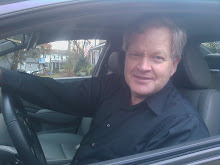Pundits Rip Arafat and Big Business, But Are We Stuck With Them?
Yasser Arafat’s cloudy future and the political impact of corporate scandals led the weekend talk shows.Vouchers and the Pledge of Allegiance flap were distant also-rans.
Soccer and an infomercial pre-empted This Week in my area, so no report on Jacob Weisberg, editor of Slate, who was a guest on their rotating roundtable.
Pundits were universal in their condemnation of Arafat, but fixated on the question of what happens if Arafat is “elected.” Secretary of State Colin Powell, on Fox and Face the Nation, and Condoleezza Rice on Meet the Press essentially shrugged their shoulders.
Face the Nation’s Bob Schieffer picked up on a New York Times story that Vice-President Cheney had championed the Bush speech that wrote off Arafat, allowing the Middle East to be taken off the table for the upcoming Congressional election. Powell denied politics was ever mentioned, but guest Tom Friedman, the New York Times’ foreign affairs correspondent, noted that no one had to mention politics.
Friedman was the star of the Arafat discussion, appearing in a Meet the Press film clip shown to Rice as well as in person on his Face the Nation segment. Friedman largely agreed with the Bush speech, but noted that the Administration was “Good at giving speeches, not good at diplomacy. He argued that Bush did not require enough of Israel. He suggested significant pullbacks from settlements on the West Bank.
Schieffer, as he did last time Friedman appeared, fawned over his guest, this time trying to get an accurate count of how many Pulitizers the columnist had won.
“Would the business scandals hurt Bush?” seemed to be the major question for the pundits as they discussed WorldCom and other companies under siege for questionable and/or illegal actions. There was a definite liberal/conservative split.
Liberal Mark Shields, on The News Hour, said, almost hopefully, “I think it's the biggest issue; it's probably the greatest vulnerability that George Bush has.”
Conservative David Brooks countered, “It has not led to a decline in Bush's popularity ratings; it has not led to a decline in the Republican Party's popularity ratings. You have got a perfect storm of events, no storm.” Then he tweaked liberals: “If there were liberals still left in this country, they would be out with their pitchforks in front of the mansions on behalf of the little people, against the corporate interests.”
Liberal Margaret Carlson on Capital Gang compared WorldCom’s accounting to armed robbery: “They might as well put on ski masks and hold guns and go into a convenience store.” Fellow liberal Al Hunt, also on CG, was not optimistic that President Bush would do much about the problem:
I think that George Bush is about as committed to taking on corporate wrongdoing as Bill Clinton was to the government abstinence program.
There's nothing in his background or his record to indicate that he really believes it. For the last year and a half they have given corporate interests almost anything they wanted. They've tried to deregulate, they've put all kinds of their -- so many foxes in so many hen houses, starting with Harvey Pitt, you can't count them all.
Conservative Bob Novak was philosophical on CG. “When you have a vibrant economy, as we had in the last few years, you're going to have some excesses. You just -- you have to take that with the capitalist system.”
Fox added Neil Cavuto, Managing Editor for Business News, to its panel for the discussion of the business scandals. He predicted more revelations of corporate wrongdoing as a new accounting firm takes over Arthur Andersen accounts and publicizes the findings, “Just to cover its own legal butt.”
Mara Lisasson agreed with one Cavuto observation: “The biggest threat Wall Street sees is re-regulation.”
Easy Going Cheney Administration
Tim Russert: “During those ‘heady’ few hours when Vice-President Cheney was in charge, did he push you around?”
Condi Rice: “No, I was at the gym.”
Correcting the Senator
Asked to react to Senator John Kerry’s declaration last week on Meet the Press that the military action is Tora Bora was a “failed operaton,” Rice replied:
With all due respect to Senator Kerry, he’s wrong.
Where Are the Democrats?
Asked by Bob Schieffer about the opposition to Bush’s foreign policy, Tom Friedman laughed off the Democrats and identified those countering Bush’s strategy as “John McCain, Colin Powell, and Tony Blair.”
Seven Nasty Words
There are seven words you will not hear this year, "Now is the time to privatize Social Security." --Mark Shields, on the impact of corporate scandals.
Judicial Physics
Every stupid decision creates a counter reaction of equal stupidity. –David Brooks, on the Ninth District’s Pledge ruling and the ensuing furor.
Avoid These Schools
American voters just don't want to have their tax dollars go for schools that are run by Louis Farrakhan or some disciple of Bob Jones. –Al Hunt, on the Supreme Court’s voucher case.
Candid Comment of the Week
I feel ambivalent about vouchers. I know that's a mortal sin on television. –Margaret Carlson
Hypocrisy Watch
Liberal hypocrisy has never been more apparent. They are perfectly willing to trap low-income kids in miserable schools they'd never send their own kids to. --Kate O'Bierne on CG.
Fake of the Week
Not to be too cruel, it is a good fake effort on the part of the House Republicans. They had to pass some sort of a fig leaf. It wasn't a serious effort. It wasn't a real effort. It was transparently so. They didn't allow a vote on the Democrats on their plan. –Mark Shields, on the GOP prescription drug plan.

